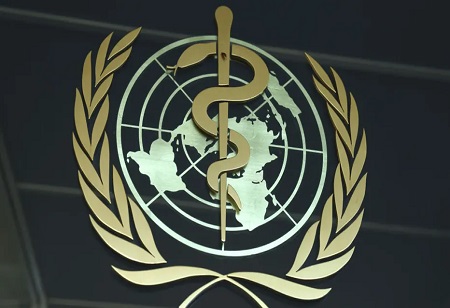India Pharma Outlook Team | Saturday, 29 April 2023

WHO has launched a new project to assist countries in better preparing for future pandemics. The initiative gives guidelines on integrated planning for reacting to any respiratory infection, such as influenza or coronaviruses. The new PRET Initiative, or Preparedness and Resilience for Emerging Threats, includes the most recent tools and tactics for shared learning and community action developed during the Covid-19 epidemic and other recent public health events.
Given that many capacities and capabilities are shared by groups of pathogens, WHO will use a mode of transmission approach to guide countries in pandemic planning through the initiative. PRET responds to the World Health Assembly's appeal for technical assistance and help in promoting and enhancing integrated preparedness and response. The initiative is being launched on the final day of meetings with over 120 people representing Member States, partners, and the WHO secretariat to define the path forward for PRET, which includes the development of a global implementation roadmap for respiratory pathogen pandemic preparedness.
The first module of the PRET Initiative focuses on respiratory pathogens such as influenza, coronaviruses, and respiratory syncytial virus. Given the ongoing Covid-19 pandemic and the potential threat of avian influenza, this module will allow countries to critically review, test, and update their respiratory pandemic planning efforts to ensure they have the necessary functional capacities and capabilities. A procedure is underway to identify the next category of diseases to be treated under this strategy, such as arboviruses. Priorities indicated in the 10 proposals to build the global architecture for health emergency preparedness, response, and resilience (HEPR) shall be followed. The PRET Initiative ushers in a new era of pandemic preparedness and is an extension of WHO's core efforts to assist all Member States in boosting their health emergency preparedness, prevention, and response capacities and capabilities.
The project may also help to put into action the goals and terms of the Pandemic Accord, which is presently being negotiated by WHO Member States. Following meeting participants' inputs and discussions, WHO invites stakeholders to this global call to action to advance respiratory pathogen pandemic preparedness. WHO, Member States, and partners are working together to identify and implement priority actions to strengthen national, regional, and global preparedness for pandemics and emerging infectious disease threats. We recognize the role of communities and all sectors, and the need for harmonized and sustained momentum to end the cycle of panic and neglect that is all too common in pandemic preparedness and response.
We remember prior epidemics and pandemics, particularly those caused by respiratory infections. These pathogens have posed and will continue to pose a significant global threat, with the potential to cause enormous morbidity and mortality, overwhelm health systems, destabilise the global economy, and exacerbate inequities in access to both pandemic prevention tools and health care for all people. This is a global call to action to increase global readiness for pandemics and new dangers. Robust preparation and coordinated activity are required for effective preparedness. Progress will be made by December 2025 if the following activities are taken collectively, as outlined in the (Preparedness and Resilience for Emerging Threats (PRET) monitoring framework: Update preparedness plans to reflect prioritised actions and lessons learned from previous occurrences. Recognising the threat posed by respiratory infections, it is critical to plan for a respiratory pathogen pandemic based on the themes highlighted in PRET Module #1: Planning for Respiratory Pathogen Pandemics.
Increase connection among pandemic preparedness stakeholders through systematic coordination and cooperation. Building egalitarian systems, performing joint exercises, and sharing information on best practises, difficulties, and opportunities are all part of this. Invest in, finance, and monitor pandemic preparedness on a long-term basis, with a special emphasis on closing gaps found during previous pandemics and epidemics. The Covid-19 pandemic response has demonstrated what can be achieved with political commitment, community engagement and funding. At the heart of this work is to ensure equity to be ready for the next pandemic together. Whole-of-society action is needed to make the progress outlined in this Call to Action.
Implementation should therefore strengthen the resilience of communities; maintain, sustain, and build on routine systems; and leverage broader capacities for emergency preparedness and response. This Call to Action was released at the Preparedness and Resilience for Emerging Threats (PRET): Global Meeting for Future Respiratory Pathogen Pandemics held on 24-26 April 2023 in Geneva, Switzerland.